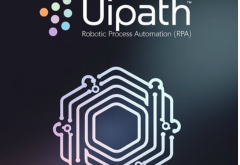The IT services industry is undergoing a significant transition due to the emergence of agentic AI, particularly for managed service providers (MSPs). Agentic AI refers to autonomous, goal-driven systems that can perform tasks, learn, iterate, and make decisions on their own, in contrast to traditional AI systems that depend on human input and supervision. By changing from service providers to what the industry is starting to recognize as Managed Intelligence Providers (MIPs), this evolution is forcing MSPs to reconsider their identity and value proposition.
MSPs have provided value for years by providing support services, managing infrastructure, and keeping an eye on uptime. Businesses, however, require more than reactive support in the rapidly evolving digital economy of today; they also seek agility, insights, and foresight. As a result, MSPs are moving away from traditional support services and toward intelligence-led models that use data, automation, and artificial intelligence to provide predictive solutions. This includes the provision of “insights-as-a-service” that inform strategic choices, automated problem solving, and cost optimization via AI analytics. Opportunities in the larger channel ecosystem are also changing as a result of this change. By incorporating AI operations (AIOps), creating automated cybersecurity layers, and offering AI-enhanced decision support tools, cloud service providers, systems integrators, and IT resellers now have new avenues for expansion. Patching, provisioning, and security incident response are examples of manual services that are becoming more and more autonomous, freeing up partners to provide higher-order strategic value.
It takes a lot of planning for MSPs to fully adopt the Managed Intelligence model. This entails establishing collaborations with AI-native platforms, investing in the appropriate data infrastructure, and fostering AI fluency across teams. In order to align with quantifiable results, pricing models may need to change from fixed to consumption-based, and traditional service-level agreements (SLAs) may need to change into experience-level agreements (XLAs). The objective is to orchestrate intelligent business outcomes rather than just enabling IT.
In the end, switching from MSP to MIP is a strategic shift rather than just a technical improvement. Intelligence will be the most important service layer in the era of agentic AI. Not only will MSPs who invest in intelligent systems, adapt early, and establish themselves as innovation partners remain relevant, but they will also be at the forefront of the next wave of digital transformation.
 Latest Technology News Today – Get Latest Information Technology Updates and Services Latest Technology News Today – Get Latest Information Technology Updates and Services
Latest Technology News Today – Get Latest Information Technology Updates and Services Latest Technology News Today – Get Latest Information Technology Updates and Services 









